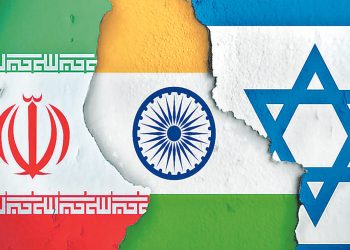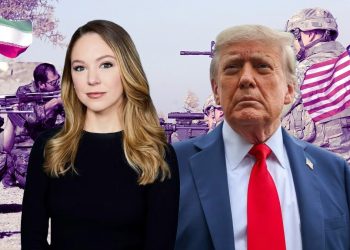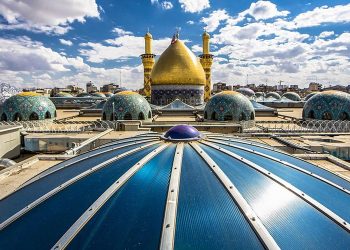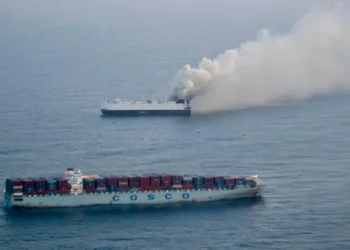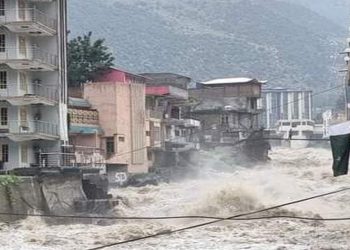The question of whether Pakistan Tehreek-e-Insaf (PTI) can be banned has gained significant attention after Prime Minister Shehbaz Sharif’s remarks on Friday, urging the civil and military leadership to devise a strategy to prevent further disturbances and to ensure peace and stability in the country.
The prime minister’s call came in the wake of the PTI’s recent violent protests in Islamabad, which he claimed threatened the nation’s peace, economic stability, and foreign investments.
In his address during a high-level meeting on law and order, Prime Minister Sharif described PTI’s actions as a series of attempts to undermine the country’s stability, calling it a “Tehreek-e-Takhreeb” or “Insurgency Movement.” He condemned the party’s leadership for using protests to destabilize the nation and damage its economic interests. Sharif highlighted that the PTI-led protests had caused substantial losses to the economy, with estimates suggesting daily losses of Rs 190 billion, along with significant disruptions in exports, imports, and business activities.
Besides the prime minister’s comments Balochistan Assembly has passed a resolution calling for a ban on TPI while a similar resolution has also been tabled in the Punjab Assembly, accusing the party of engaging in anti-state activities. This escalation has sparked further debate on whether PTI’s actions warrant such a drastic measure.
Legal and Constitutional Considerations:
In Pakistan, political parties can be banned under Article 17(2) of the Constitution, which allows the government to prohibit any party that acts against the sovereignty and integrity of the state. A ban can be implemented if it is proven that the party poses a genuine threat to national security or public order. Historically, political parties in Pakistan have been banned for engaging in anti-state activities, involvement in terrorism, or receiving foreign support to incite unrest.
However, such decisions are usually subject to investigations and legal proceedings. For a party to be banned, there must be evidence that its actions directly undermine the stability of the state. This has often involved accusations of terrorism, secessionist movements, or instigating violence against the government.
A Historical Context:
Pakistan has witnessed several instances of political parties being banned in its history:
- Communist Party of Pakistan (1954): The first major ban was imposed on the Communist Party in 1954, following allegations that it was involved in a military coup attempt backed by the Soviet Union.
- Awami League (1971): The party was banned after the government accused it of creating turmoil and trying to establish a parallel government, leading to the eventual breakup of Pakistan.
- National Awami Party (NAP): The NAP faced bans twice, once in 1971 and again in 1975, for advocating provincial autonomy and allegedly engaging in anti-state activities.
- Tehreek-e-Labbaik Pakistan (TLP) (2021): After violent protests and clashes with the police, TLP was banned for its involvement in terrorism, though it continued to contest elections.
- Jeay Sindh Qaumi Mahaz-Arisar (2020): Banned for its separatist activities and links to militant groups.
The PTI Situation:
For PTI, the discussion around a potential ban revolves around accusations that the party has been instigating political unrest and violence. Prime Minister Sharif specifically blamed PTI for multiple attempts to disrupt the government and harm the nation’s peace. He recalled the 126-day-long sit-in in 2014, which he said caused irreparable damage to Pakistan’s international image and its economic stability. He also mentioned recent violent protests in Islamabad, during which PTI supporters clashed with security forces, resulting in casualties among police and Rangers personnel.
Despite these calls for a ban, the issue is not as clear-cut as it may seem. Banning PTI could raise significant constitutional and legal challenges, especially given the party’s considerable political influence and widespread support. Legal experts argue that banning PTI would undermine democratic principles, stifle political discourse, and set a dangerous precedent for the future of Pakistan’s political landscape.
While the prime minister and other political figures have called for strict action against PTI’s leadership, including investigations into its role in the recent unrest, the government has also set up a task force to identify those responsible for the violence in Islamabad. Additionally, a Federal Riot-Control Force and a Federal Forensic Lab are being established to prevent future disruptions and ensure swift legal action against those involved in chaos.
For PTI, the threat of a ban looms large, but the party’s future remains uncertain. The government’s next steps will depend on the results of investigations and whether the PTI leadership can be linked to actions that pose a tangible threat to Pakistan’s sovereignty and security.








